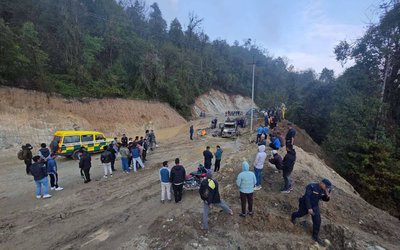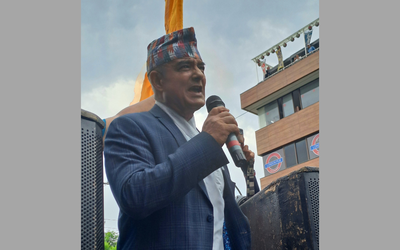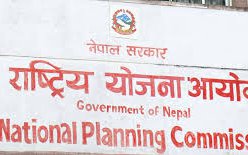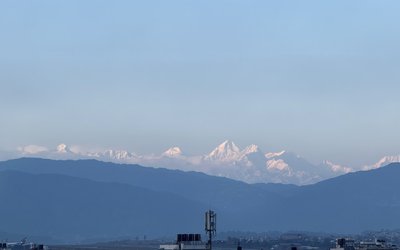
The Government of Nepal is committed to achieve the SDGs, including SDG-7 to provide affordable, reliable and modern energy services to its people. We have created enabling political environment including a new constitution, successful elections at federal, provincial and local levels.Overall economic development is now the foremost priority for us.Energy, being the key driver for economic development, has become the area of main focus of the Government.
With a view to mobilising concerted efforts for the overall water resources and energy development, the Government of Nepal has restructured its administrative entities and established the Ministry of Energy, Water Resources and Irrigation along with other institutional arrangements at the levels of province and local government.
In providing energy access to all, Nepal has made significant progress especially in remote areas. About 16% of the rural population are using off-grid energy solutions from solar home systems and micro hydropower plants. Similarly, more than 1.6 million households are using clean cooking technologies such as domestic biogas and improved cook stoves for meeting their cooking needs.
Being a country with difficult geographic condition, scattered human settlements and limited transport infrastructure, Nepal faces many challenges to ensure affordable, reliable, sustainable and modern energy to all of its citizens. Nearly 24 % of total population, especially those residing in remote and rural areas, is yet to have access to modern electricity supply, and more than 66 % of the population continuesto use traditional solid fuel for cooking. Recent estimate shows that per-capita grid electricity consumption in Nepal is around 164 kilo-Watt hour.
To overcome these challenges, we need huge investment, human resource development and technological innovation. Since we opened up our electricity sector for private investment fromearly nineties,we have seen encouraging involvement of both national and international private investors in hydropower generation.
Despite huge hydro potential, we have been so far been able to develop only 2.5 % of it. We have just surpassed one Gigawatt mark of total hydro installation. The Government is considering distributed electricity generation through micro-hydro, solar, and wind along with strengthening and expansion of electricity distribution system through bottom up approach. We will continue our efforts for harnessing hydro potential to generate sufficient electricity to meet our national requirement and securing the investment for the same. Likewise, many high voltage electricity transmission lines are also under construction.
In order to address the need for sustainable and modern energy in rural areas, the Government has adopted Rural Energy Policy, Renewable Energy Subsidy Policy, Biomass Energy Strategy, etc. The Government will soon adopt Energy Efficiency Strategy and implement efficiency measures and programs for optimum energy use. I believe that optimum exploitation of hydropower and the use of locally available renewable sources like solar and wind will be the key factor for a stronger and stable energy mix. This will also reduce our heavy dependence on imported fossil fuels through substitution with clean and renewable energy sources.
We believe that regional energy connectivity is necessary for balancing energy supply and demand in the region. The complementarities of electricity generating resources available in our region are a formidable strength to enhance sustainable energy development in the region.
On bilateral front, we have Power Trade Agreement with India, concluded in October 2014. Likewise, we are working towards entering into bilateral cooperation on electricity sector with Bangladesh and China.
On the regional front, we have the platforms of SAARC and BIMSTEC to mutually cooperate in the energy sector. We believe that regional cooperation can be achieved by gradually moving from widely practiced bilateral Cross Border Electricity Trade (CBET) to sub-regional CBET, and finally setting up power trading mechanisms at the regional level. This, we believe, will allow the member countries to move from dependence to inter-dependence on the use of energy.
We have hurdles and challenges. But, with our focused efforts, and support and cooperation from international community, we are hopeful of meeting our goal within the stipulated timeframe. We also request the UNESCAP for technical support for realizing SDG – 7 and other related targets. I hope that we will succeed in achieving our Sustainable Development Goals through our concerted efforts and regional cooperation.
Pun Is The Minister of Energy, Water Resources and Irrigation. Excerpts of Pun’s statement delivered at Second Asian and Pacific Energy Forum in Bangkok.














